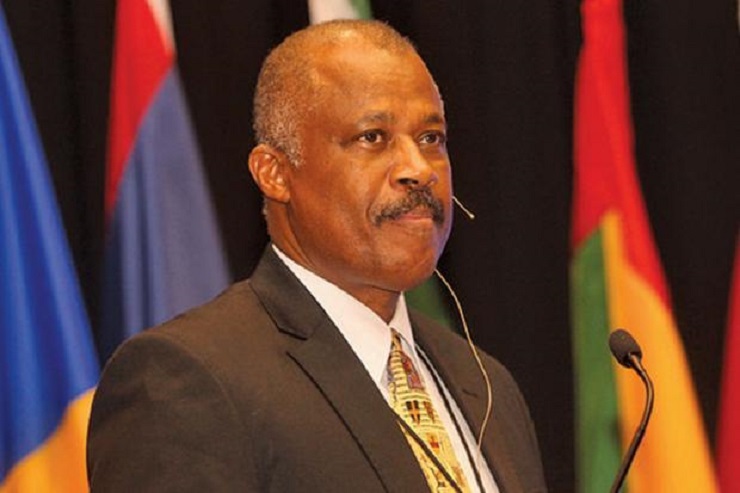Chairman of the CARICOM Reparations Commission Sir Hilary Beckles is proposing a “reparation summit” so the region could thrash out with England and Europe how they would honour the debt owed to the Caribbean.
The three-day summit, he said, was the next natural step in the region’s “exit from colonialism” towards further development in order to correct years of far-reaching harm done during slavery.
Sir Hilary argued that an apology was simply not enough, and it was time for reparations for development.
“This is the age when the crimes and their legacies and their continuing harm are being recognized. This is a moment where the pain and suffering of communities that have descended from the enslaved and the indentured are calling for justice, fairness, and dignity within the context of the continuing harm that is a part of our societies,” said Sir Hilary.
He said the “colonial mess” that the region inherited from Britain and Europe remained visible in every aspect of Caribbean life, adding that they deliberately and strategically chose to walk away and left the mess to the leadership of Caribbean governments and civil society.
Sir Hilary argued that billions have been spent by regional governments over the years to correct the “mess” created in the areas of education and health, adding that the region was also suffering the harm of British policy in the manufacturing sector.
“Reparatory justice is about development. Britain and Europe do indeed owe a debt to this region. A debt that is recognized, a debt that can be computed, a debt that is historically sound in terms of its legitimacy.
“This is a debt to development. As a consequence, the Caribbean Reparations Commission is calling for a reparations summit in much the same way that the region met with the European governments to discuss independence, this is phase two of the independence process,” said the noted historian.
He said day one of the summit would be a conversation between the governments and day two would involve conversations between the private sectors of the two regions.
“The time has come now to move to that summit with these major corporations to discuss their contribution to a development plan for the Caribbean. Day three will be for civil society and individuals,” said Sir Hilary.
He did not say how soon such a summit could be called, but he noted that the region made a similar call some three years ago for a formal dialogue with leaders of Europe but the response was “not positive”.
“Apologies are not enough. Apologies are precursors for reparations. Apologies are signals of an intent to participate in a reparatory process. Apologies are stage one of an effort that says we acknowledge the harm we have caused and we are prepared to enter phase two, which is a discussion and negotiation about how to repair that harm and suffering that continues to be the legacy in the Caribbean today,” said Sir Hilary.
He said the letter of request for a summit was “imminent” and would be done as soon as the region’s political leaders are ready to engage at that inter-Government level.
Prime Minister Mia Mottley said she supported the call for a reparation summit, stating that reparation was not simply about money but also about justice and even in the space that allows us to have policy flexibility to be able to deal with a lot of what we are dealing with.
Mottley explained that the region was still struggling with several issues relating to the financial sector, high debt and limited fiscal space, education, health, land and housing, as well as psychological scars.
She argued that while regional governments are able to put policies in place to help their citizens, they would not go far enough without reparations.
“The reality is that we were not given a development compact that allowed us to move off. We were given political independence, the power to make laws. And make laws we did to reverse the legal trappings of discrimination and bigotry for the most part, but the trappings were not just legal. The trappings were psychological, sociological in terms of the breaking up of our families, and the trappings led to a destruction of trust,” said Mottley.
“Ultimately, the scale that will lead to transformation depends on an international compact for the Caribbean,” said Mottley, adding that the region’s issues have been compounded by the ongoing COVID-19 pandemic.
Highlighting the issue of “blacklisting”, Mottley added “The ability of our people to rise above the equation of everything negative is black is absolutely necessary if we are to start looking in the mirror and love ourselves and move to the next level.
“I want to support strongly the Commission’s call for an encounter not just with the UK, but with the European Union,” said Mottley.
They were speaking during an online discussion From Apology to Action – CARICOM’s call for Reparatory Justice.
marlonmadden@barbadostoday.bb




